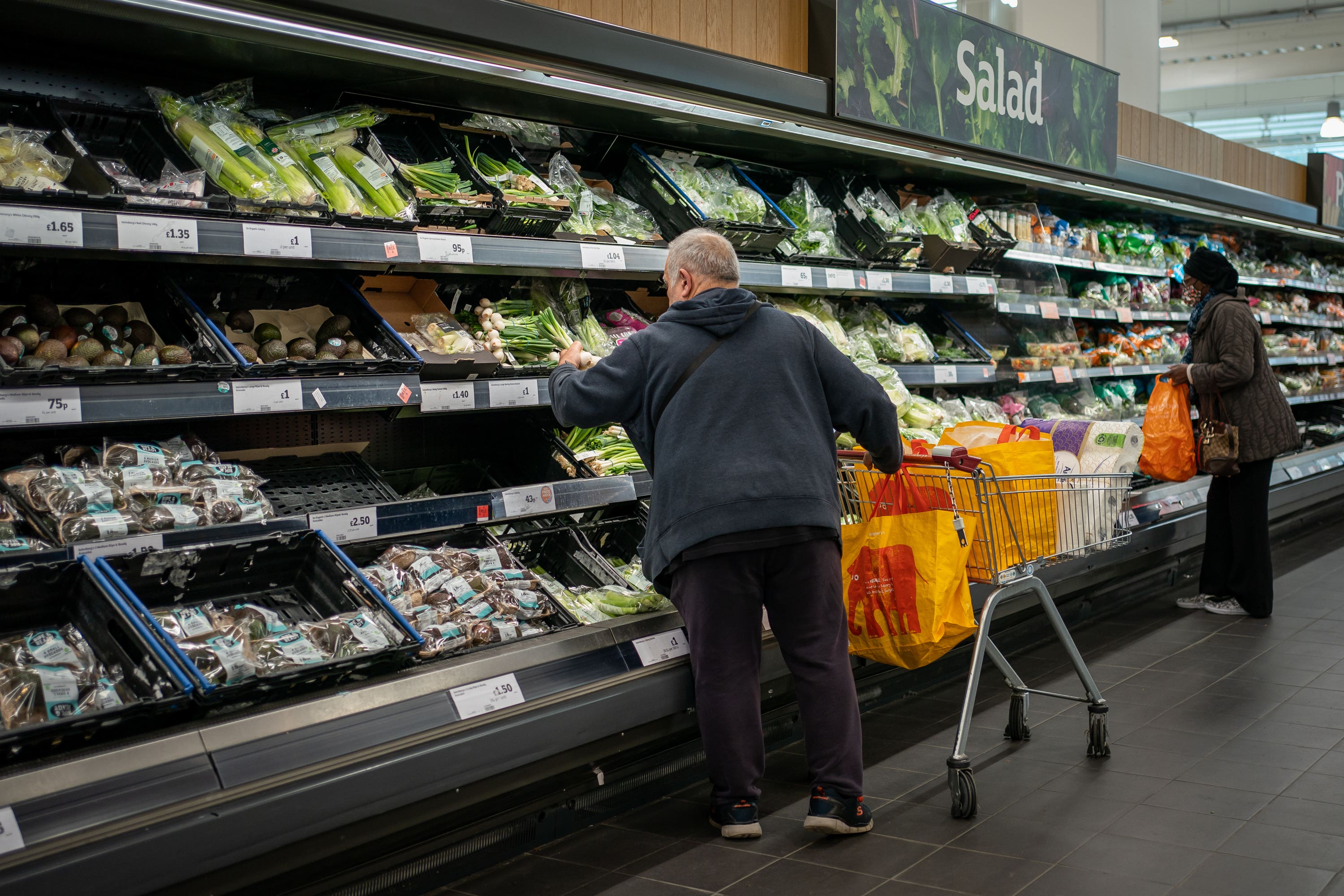Grocery price inflation drops to new two-year low
Supermarket prices were 4.5% higher than a year ago in March, according to analysts Kantar.

Grocery price inflation has dropped to a new two-year low but almost a quarter of British households say they are still struggling financially, according to latest figures.
Supermarket prices were 4.5% higher than a year ago in March, the lowest inflation rate since February 2022 and a significant drop from last month’s 5.3%, according to analysts Kantar.
Despite the continued slowdown, 23% of British households identify themselves as struggling financially – the same proportion as in November last year, according to a survey by Kantar Worldpanel of more than 10,700 people at the end of January.
Among those feeling the most pressured, 78% are actively buying cheaper groceries while 68% are using promotions to help manage budgets, with £605 million more spent on deals this month than in March last year.
Sales of branded goods pushed ahead of own label products in March. However, premium own-label lines grew by a “whopping” 16.1% this month – the quickest rate seen by Kantar in almost three years.
Despite this continued slowdown, many British households are still feeling the squeeze
Fraser McKevitt, head of retail and consumer insight at Kantar, said: “Grocery inflation has come down significantly since hitting an eye-watering peak of 17% in March 2023.
“However, despite this continued slowdown, many British households are still feeling the squeeze.”
Financial woes have not stopped consumers spending £88 million more on Easter treats in the first three months of this year than last year, with volume sales of hot cross buns up by 15%, although the event falls 10 days earlier this year than last year.
Take-home grocery sales in general overall rose by 4.6% over the four weeks to March 17.
Mr McKevitt said: “With Easter on the horizon, consumers have been stocking up on classic seasonal treats, with a quarter of people picking up four or more items when buying chocolate eggs.
“This rises to 29% for shoppers aged over 65, suggesting that many grandparents are planning to indulge their families this weekend.”
Ocado was the fastest growing retailer in March, improving sales by 9.5% in the last 12 weeks, well ahead of the total online market which rose by 6.6%.
Year-on-year sales at Tesco and Sainsbury’s climbed by 5.8% and 6.7% respectively, taking them to market shares of 27.3% and 15.2% respectively.
Bookmark popover
Removed from bookmarks